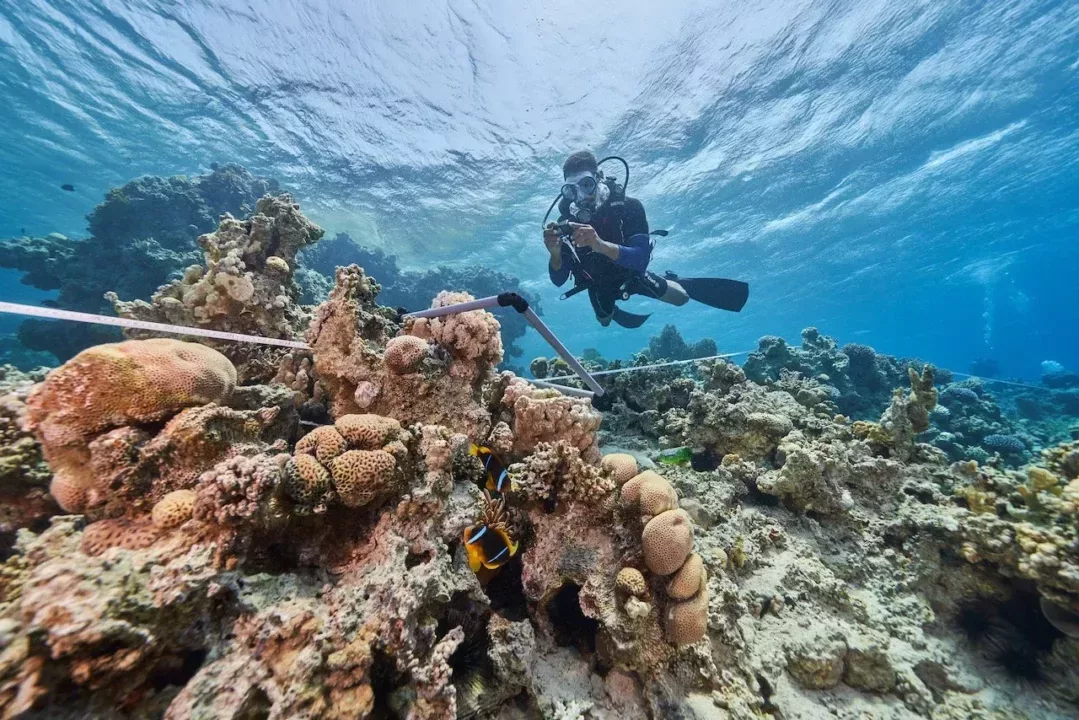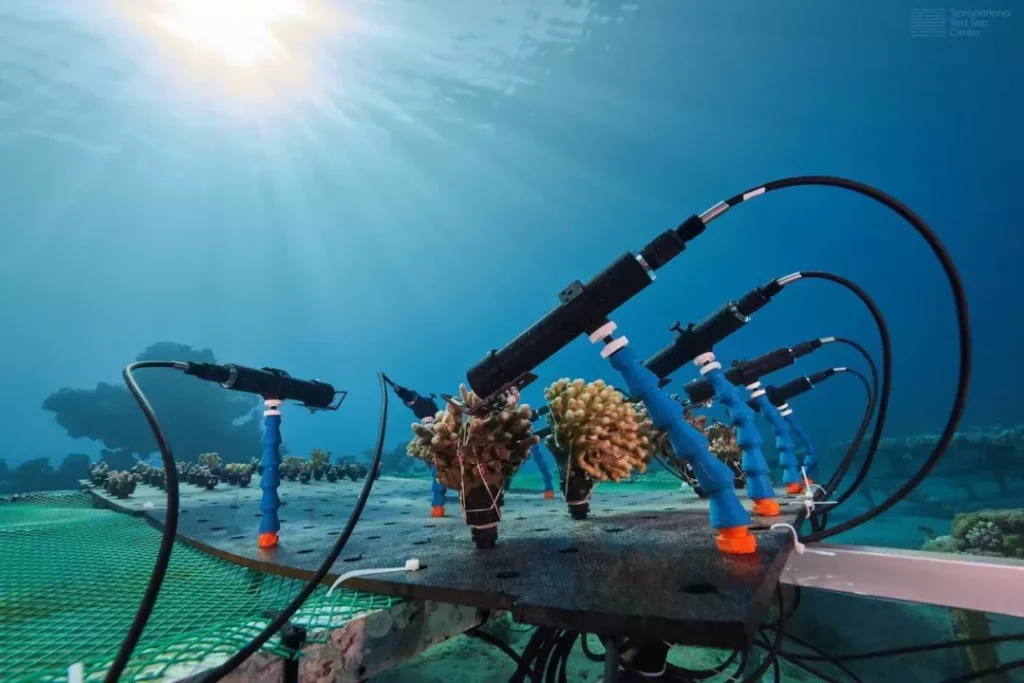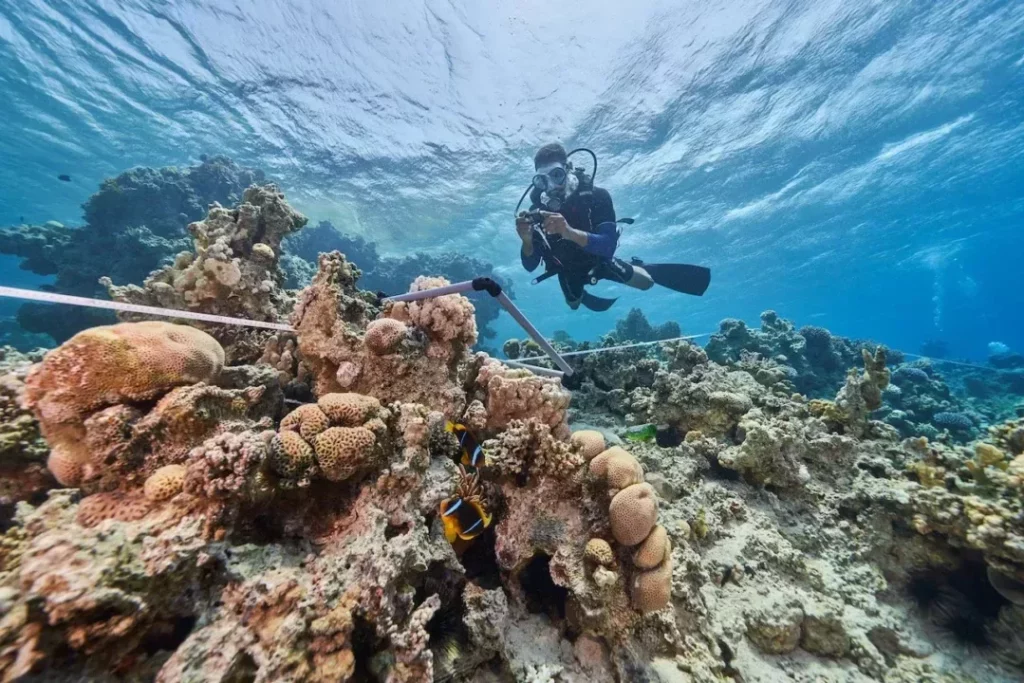In the Gulf of Aqaba, Jordan, Israel, Sudan and Switzerland join their efforts for the sake of Red Sea corals under the auspices of the Transnational Red Sea Center.
The Transnational Red Sea Center, a Swiss initiative bridging science and diplomacy for the study and preservation of the most promising coral “refuge” on Earth, has just completed a first scientific mission along the Jordanian and Israeli coasts in collaboration with its local partners.
Conducted with the Marine Science Station in Aqaba and the InterUniversity Institute for Marine Sciences in Eilat, as well as Sudanese researchers from the Red Sea University in Port Sudan, this multidisciplinary survey laid the foundations for the establishment of the first-ever Red Sea-wide coral ecosystem and biodiversity ‘baseline’.
For two weeks, from the end of July to the beginning of August, this multinational team of ten scientists conducted several programs on: coral reef population structure, dynamics, and adaptive potential through seascape genomics; the estimation of coral species assemblages through environmental DNA (eDNA) metabarcoding; assessing the metabolic response to thermal stress to increase our knowledge about fundamental cellular metabolism; assessing the impact of plastic and trace-metal pollution on corals, and scalable 3D-mapping of shallow coral reefs with machine learning.
This joint mission also included the installation of a new coral health monitoring station in Aqaba. After Eilat where a first one was installed in late 2021, this pioneering equipment is the second in a network of such stations that the TRSC and its regional partners aim to deploy at various key locations around the Red Sea.
The Coral Monitoring Station consists of a set of sensors positioned at a depth of 6 meters to monitor the physiological behaviour of coral colonies and several environmental parameters. It also includes an underwater camera that allows to follow in real-time, via a web interface, the activity and diversity of reef fish as well as the pigmentation of corals, and if necessary to detect the first signs of possible bleaching.
These two developments are concrete illustrations of the science diplomacy promoted by the TRSC, with the official support of the Swiss Confederation, in favour of global warming-resistant Red Sea corals thanks to a regional approach. In the short term, the mission to the northern Gulf of Aqaba will be followed by the next mission to Djibouti from 16 to 29 September, during which the same programs will be conducted in partnership with the University of Djibouti and the Centre d’Etude et de Recherche de Djibouti (CERD).
Watch the 8’ documentary on the Gulf of Aqaba mission here.
Access the live online Aqaba Coral Health Monitoring Station data flow here.



